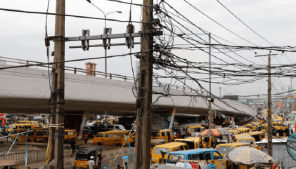Nigeria will let people travel between its states outside curfew hours from July 1, a senior official said on Monday as authorities moved to relax some coronavirus restrictions.
Students due to graduate this year will also be able to go back to school to prepare for exams, though other children are still barred from attending, said Boss Mustapha, chair of the presidential task force on the infection.
The task force is trying to strike a “delicate balance” between protecting people’s livelihoods and their health, he added.
Authorities have imposed a 10pm to 4am curfew and ordered people to wear masks in public places to curb the spread of the virus. Gatherings are limited to 20 people.
In the video below, Six months since WHO received formal communication from China about COVID-19
“We have observed with growing concern the non-compliances with these measures designed to prevent transmission,” Mustapha told reporters in the capital, Abuja.
“We run the risk of erasing the gains made in the last three months,” he said.
Coronavirus may push 5 million into poverty
Nigeria’s coronavirus outbreak may push 5 million people into poverty as it triggers the worst recession in the African powerhouse since the 1980s, the World Bank said last week Thursday.
The twin shock of the pandemic and a global oil price crash has pummelled Nigeria, which has Africa’s largest economy mainly because it is the continent’s top crude producer.
But Nigeria also has the highest number of people living in extreme poverty in the world, and has not recovered from another recession in 2016.
The World Bank forecasts Nigeria’s economy will shrink 3.2-7.4% this year, depending on the severity of the COVID-19 outbreak. In a worst-case scenario, the recession could continue into 2021 when the economy could contract 2%, it said.
“Today’s unprecedented crisis will require an equally unprecedented response from the entire Nigerian public sector (and) private sector to contain the outbreak and protect the lives and livelihoods of low-income and vulnerable communities,” the Bank said in a report on Nigeria’s economic development.
The five million people facing poverty due to COVID-19 come on top of the 2 million the World Bank had previously projected would become impoverished, with the pandemic disproportionately affecting the poor, particularly women.






